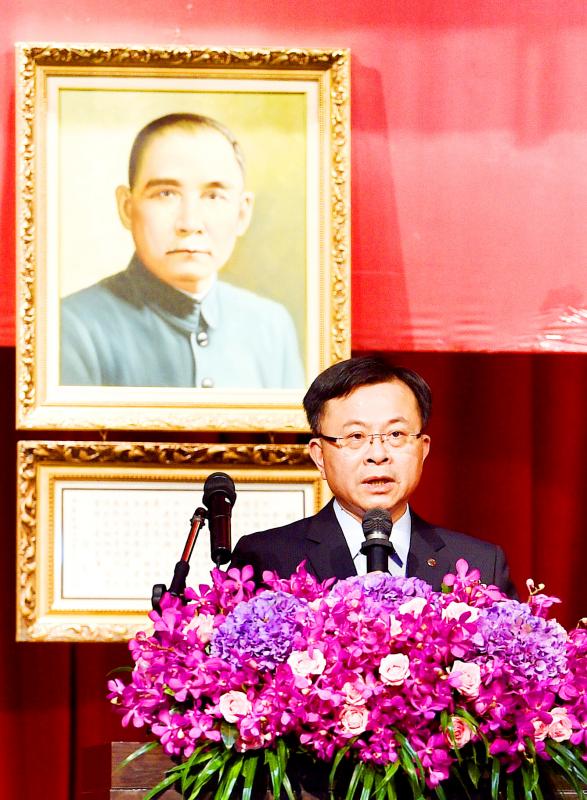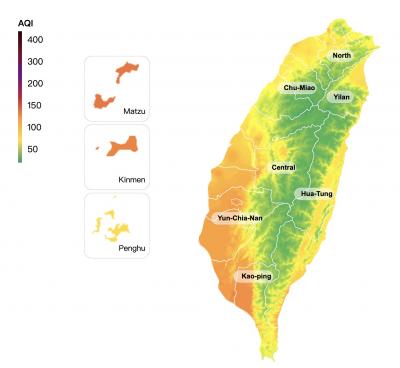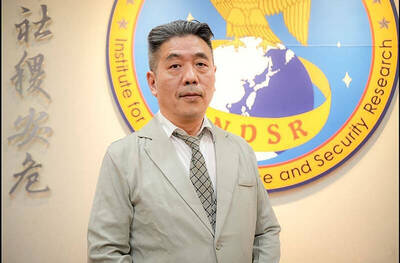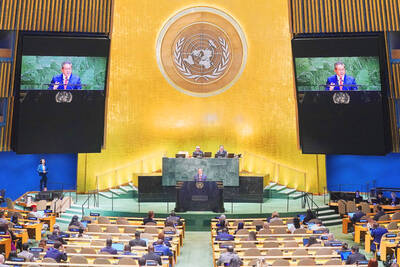The National Communications Commission plans to amend three key media laws to address a series of challenges facing the cable television industry, newly installed Chairman Chen Yaw-shyang (陳耀祥) said yesterday.
Chen, who had been acting chairman, along with Vice Chairman Wong Po-tsung (翁柏宗) and three commissioners — Hsiao Chi-hung (蕭祈宏), Lin Lihyun (林麗雲) and Wang Wei-ching (王維菁) — took office yesterday following their confirmations by the Legislative Yuan last month.
“The commission is reviewing the Cable Radio and Television Act (有線廣播電視法), the Radio and Television Act (廣播電視法) and the Satellite Broadcasting Act (衛星廣播電視法), and will propose amendments to address problems highlighted by recent disputes in the industry. Specifically, we want to establish a well-rounded mechanism to govern how cable operators arrange channel lineups. We would also stipulate supporting measures to be implemented when the nation enforces a tiered-pricing policy for cable services,” Chen said in a speech at the inauguration of the new commission members.

Photo: Peter Lo, Taipei Times
He also recounted the commission’s accomplishments since he became acting chairman in May last year: In February it completed the auction for the spectrum to be used for 5G service, generating a total of NT$142.19 billion (US$4.81 million) in bids; Taiwan entered the 5G era with the launch of services by telecoms on June 30; the Telecommunications Management Act (電信管理法) was implemented on July 1; the commission has revised more than 80 supporting regulations in accordance with the act, and all cable services in the nation were digitized, as of June 30, Chen said.
The commission on July 15 presented its draft for an “Internet audiovisual service management act” (網際網路視聽服務管理法) to regulate the over-the-top service, and it is now soliciting opinions from the public about the draft, Chen said.
“We would gather opinions and revise the draft act if necessary before submitting it to the Executive Yuan,” he said.
The commission is also drafting a digital communications act (數位通訊傳播法) to promote the development of innovative applications under the principle of Internet governance, Chen said.
Except Hsiao, who would only be a commissioner for two years, the terms for Chen and other new commissioners are to run until July 31, 2024.

As of 4pm this afternoon, 27 monitoring stations across Taiwan had issued an orange rating for air quality, mostly concentrated in the central and southern regions, the Ministry of Environment (MOENV) Web site showed. An orange warning indicates air quality that is “unhealthy for sensitive groups.” None of the monitoring stations nationwide reported a “green” air quality rating, with all other stations recording yellow for “moderate” air quality. The ministry advised those sensitive to pollution, such as the elderly, children and those with weaker immune systems, to reduce strenuous outdoor activities and wear masks for protection. Northeasterly winds could carry

The year 2027 is regarded as the year China would likely gain the capability to invade Taiwan, not the year it would launch an invasion, Taiwanese defense experts said yesterday. The experts made the remarks after President William Lai (賴清德) told a news conference on Wednesday that his administration would introduce a NT$1.25 trillion (US$39.8 billion) special defense budget bill to boost Taiwan’s overall defense posture over the next eight years. Lai said that Beijing aims for military unification of Taiwan by 2027. The Presidential Office later clarified that what Lai meant was that China’s goal is to “prepare for military unification

HOW RUDE: Joe Biden’s Indo-Pacific defense chief condemned China’s response to Takaichi’s remarks as inappropriate and heavy-handed, while praising Japan’s nerve A former US defense official under former US president Joe Biden has voiced support for Japanese Prime Minister Sanae Takaichi for her remarks suggesting that Japan could help defend Taiwan, while describing Beijing’s response as “inappropriate.” Ely Ratner, who served as assistant secretary of defense for Indo-Pacific security affairs from 2021 to this year, said in a CNA interview that Takaichi’s comments on Taiwan simply reflected Japan’s position and stance on Taiwan. On Nov. 7, the Japanese prime minister commented in a parliamentary session that a Chinese attack on Taiwan could constitute “a situation threatening Japan’s survival” that could trigger a military

In the roughly three weeks since Japanese Prime Minister Sanae Takaichi commented on a possible Taiwan contingency in the Japanese Diet, China has unleashed economic reprisals, nationalist barbs and a diplomatic offensive to show its displeasure. Now, Chinese President Xi Jinping’s (習近平) government is escalating the dispute with an appeal to the UN, a move aimed at pressuring countries to side with China’s stance on a potential conflict over Taiwan — or stay out of its way. In a letter to UN Secretary-General Antonio Guterres on Friday last week, Chinese Permanent Representative to the UN Fu Cong (傅聰) accused Takaichi of contravening